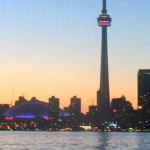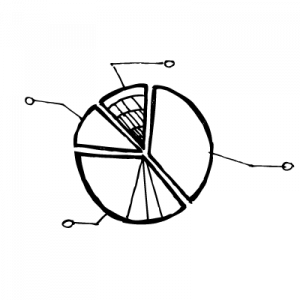Canada has long played second fiddle to its larger southern neighbor, but Canada is now one of the hottest MBA destinations, where application growth is far outstripping the US.
Two of the most revered business schools in Canada are Toronto’s Rotman School of Management and the Desautels Faculty of Management at McGill University in Montreal. As Canadian schools, they share a few advantages over those in other countries. One is that studying on either Rotman or MgGill’s full-time MBA will make foreign students eligible for a three-year Canadian work permit. This is unconditional, even if they do not have a job offer.
But there is plenty that separates rather that binds these two leading Canadian schools.
Rotman vs. McGill: MBA program and curriculum
One big difference is the curriculum. Rotman’s MBA is highly customizable, featuring sixteen specializations that include innovation and entrepreneurship, real estate and brand management.
McGill only offers four, in marketing, finance, business analytics, and global strategy and leadership. “Applicants should take this into consideration and think about their long-term career goals when deciding on a school,” says Chaya Pomerantz, CEO of ARINGO MBA Admissions Consulting.
Another difference is that Rotman combines 16 months of academic study with four months of a paid internship. McGill’s course runs for a full 20 months, though students have the chance to go on a study trip, as well as doing internships and an international exchange program.
At McGill a two-week series of preparatory classes in statistics, financial accounting and math for finance called “Base Camp” is mandatory. “These classes are designed to give incoming MBA students the fundamentals and be fully prepared for the program,” says Pomerantz.
Rotman has similar courses taken over three weeks in August, but they are not mandatory. Students learn finance but also gain useful skills in academic writing, business communication and presentation.
The first year of Rotman’s MBA is comprised of many areas of study and the second is for electives and internships. At McGill students take five core subjects in the first year plus electives. The second year is more informal and based on learning by doing. “It focuses on practicums, internships and an international exchange,” says Pomerantz. “For those who learn better in informal settings, McGill might be a better option.”
But experiential learning is also a key feature of the Rotman program and that was one reason why Gauraang Dhar, an MBA candidate picked the school. “Programs such as the Creative Destruction Lab, Leadership Development Lab, Behavioural Economics in Action at Rotman, Integrative Thinking, and Rotman DesignWorks stood out to me and showed me that the school is committed to giving its students an experience which will arm them with tools to succeed in their workplace in a very unique way,” he says. He adds that the helpful alumni network also stood out.
[See the Top 10 MBA Programs in Canada]
Another factor to consider is the cost of tuition for each school, especially for overseas students who will pay higher fees. Rotman’s course is pricier, with tuition fees at $120,680 for internationals whereas McGill charges $92,500. But these prices do tend to vary slightly each year.
Furthermore, the overall cost of living in Toronto is 22 percent higher than Montreal, says Alex Min, CEO of The MBA Exchange admissions firm. “Among the expenses most meaningful to MBA students, monthly rent is about 40 percent higher, public transportation is 43 percent higher, and restaurant prices are 21 percent higher in Toronto.”
Rotman vs. McGill: MBA admissions requirements and selectivity
Both schools have three application rounds with similar deadlines, plus an extra round that is only available to Canadian applicants. Both schools require a resume, undergraduate transcript, a GMAT/GRE score, and two recommendations for admission.
Rotman most recently required applicants to submit one- to -three of their “spikiest” photos and then explain why they chose those particular images (maximum 1,000 words). A pioneer in the use of video, Rotman also has two impromptu video questions that require submission of a written response within ten minutes.
Rotman’s MBA is less selective with an acceptance rate of 49 percent, compared to 32 percent for McGill’s MBA. However, an offer of admission from Rotman is slightly more compelling, as evidenced by its yield of 57 percent, compared to McGill’s 54 percent.
Rotman may be more flexible in terms of admitting students without an academic background in business, since business majors do not even make up a third of the class. The rest is made up of students who majored in engineering, life sciences, economics, law and many other disciplines.
Rotman also likes to get to know candidates before they even apply, says Pomerantz. “Pre application meetings are suggested. This is a great opportunity for applicants to make a great first impression and learn more about the program, in a more casual setting than an interview.”
Rotman does not usually disclose application numbers but the school said recently that applications had increased by 30 percent. Despite this increase of applications, the program kept to its 350 student per year policy, “making it more selective and more difficult to get in than before”, says Pomerantz.
McGill’s class size is much smaller; only 150 students are admitted out of the 850, on average, that apply.
Rotman vs. McGill: MBA cohort quality and location
McGill has the edge on cohort quality, with a slightly higher GMAT score average of around 680 and GPA of about 3.4. “However, McGill do stress that an applicant’s GMAT score is not the only factor they take into consideration [when deciding whether to admit or reject an applicant,” says Pomerantz.
Rotman prides itself on the diversity of its student body, with typically 52 percent of the full-time MBA cohort being international. They are mostly from North America but the students belong to 35 nationalities overall and speak 28 different languages.
McGill is heavily diverse too, with the program 60 percent international. The city of Montreal is multicultural and moves at a slower pace to Toronto, says Pomerantz. “McGill hope that students spend time exploring the unique events the city has to offer,” she says. Montreal is renowned for its events and festivals for arts and culture, for example.
“The culture on each campus is heavily influenced by the city in which the university is located,” adds Pomerantz. Toronto, for instance offers myriad employers and is also known for its innovation in the technology and financial industries. Consultants say this is a huge asset and gives students an advantage in their post-MBA career.
Min adds: “Toronto’s location on the shores of Lake Ontario offers slightly warmer weather and 40 percent fewer snow days. However, for those who enjoy skiing and other winter sports, Montreal boasts having mountains less than an hour’s drive from downtown. Toronto is more of a ‘business city’ than Montreal, with the country’s largest stock exchange and several more corporate headquarters.” For those who prefer a larger more urban environment, Toronto is the right choice, he says.
Language is also an important consideration. Unlike English- oriented Toronto, French permeates the culture and is the primary language for half the population of Montreal.
Rotman vs. McGill: MBA career outcomes
According to the 2018 career reports, Rotman had a 76 percent employment rate for MBA graduates three months after graduation and an average base salary of $91,282. At McGill, graduates had a 90 percent employment rate and an average base salary of $87,000.
Rotman’s MBAs largely went into financial services, an industry which took 37 percent of the cohort. About 20 percent went to consulting, followed by 9 percent in tech and another 9 percent in consumer goods and retail.
Most of McGill’s students work in Canada, 45 percent in Montreal, 35 percent in Toronto and 14 percent elsewhere in the country. Some 6 percent work overseas. In terms of sector placement, a good chunk of McGill’s MBA alumni works in finance or banking, with healthy percentages having gone into consulting and consumer products as well, according to data from the Financial Times’ Global MBA Ranking.
Rotman is the more established school, having been founded in 1950. But McGill has a far bigger alumni network of 30,000 members.










